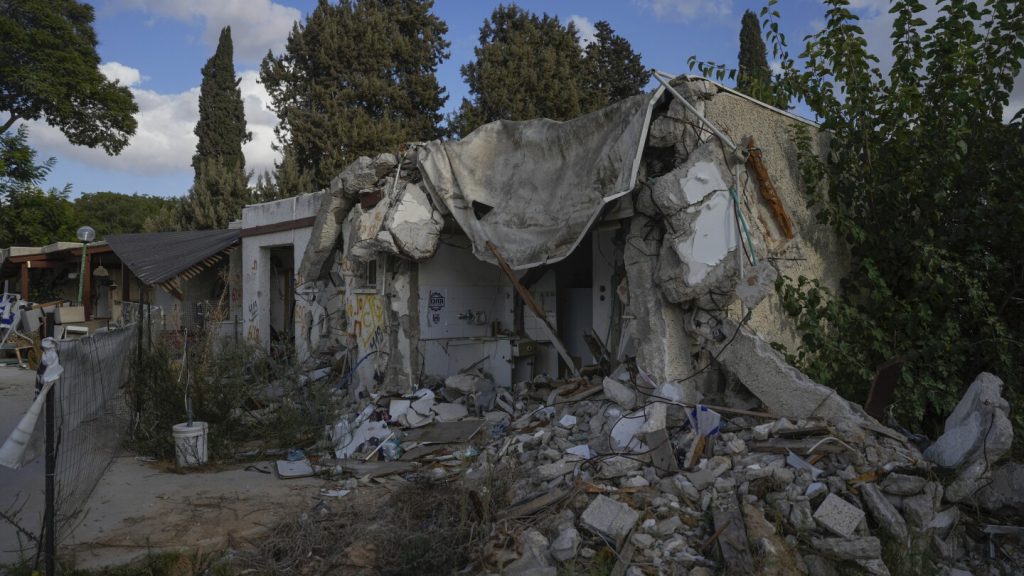A year has passed since the deadly attack by Hamas militants on Kfar Aza, a community near the Gaza border in Israel. The attack resulted in the death of 1,200 people in the southern communities and the taking of 250 hostages. Liora Eilon, whose son Tal was killed in the attack, wonders if she will ever feel safe enough to return home. Only 50 of the 1,000 residents have returned, with many expressing feelings of vulnerability and distrust towards the government and the Palestinians on the other side of the fence.
The aftermath of the attack is still visible in the ruins of houses, bullet holes, and rubble that remain in Kfar Aza. The community is now fragmented, with residents living in dorms and hotels further north. Some residents question whether the scarred place can ever be lived in again, while others are determined to rebuild. The government has promised to reconstruct the community, starting with pre-fabricated houses in a nearby kibbutz, Ruhama, with plans for residents to eventually return to Kfar Aza.
Memorials and tributes are held in Kfar Aza to remember the lives lost in the attack. Survivors gather for meals and share stories of the tragic day. Meanwhile, families of hostages and residents continue to demand accountability from the government and the military. Questions remain about the delayed response of soldiers during the attack, with ongoing investigations seeking to uncover the failures in command and control that contributed to the high casualty toll.
For the families of hostages, the pain of the attack lingers as their loved ones remain captive in Gaza. Simona Steinbrecher, whose daughter Doron was taken by militants, refuses to return home until her daughter is safely returned. The community of Kfar Aza holds its own tributes to commemorate the anniversary of the attack, expressing anger towards the government for its perceived failures.
The future of Kfar Aza remains uncertain as residents grapple with the trauma of the past and the challenges of rebuilding their community. Some residents advocate for a hard line approach towards Gaza, while others seek peaceful solutions through dialogue and cooperation with the Palestinians. Despite the devastation and loss, there are hopes for reconciliation and coexistence between the two communities living side by side in the region.
As the residents of Kfar Aza continue to rebuild their lives in the aftermath of the attack, the scars of that tragic day remain etched in their memories. The community faces a long road ahead towards healing and reconciliation, with the hope of one day living in peace with their neighbors across the border in Gaza.


